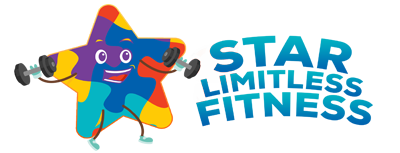The Benefits and Considerations of Boxing Training for Individuals with Down Syndrome
Introduction:
Down syndrome is a genetic disorder caused by the presence of an extra chromosome 21, leading to intellectual disability and physical characteristics. Engaging in physical activities and sports can provide numerous benefits for individuals with Down syndrome, promoting physical, mental, and social well-being. Boxing, a sport that combines physical training, coordination, and discipline, has emerged as a promising activity for people with Down syndrome. This paper explores the potential benefits and considerations of boxing training for individuals with Down syndrome.
Physical Benefits:
1. Improved cardiovascular health: Boxing training involves high-intensity exercises that can enhance cardiovascular endurance and reduce the risk of obesity and related health issues, which are prevalent among individuals with Down syndrome.
2. Increased muscle strength and tone: Boxing exercises, such as punching, footwork, and resistance training, can help build muscle strength and improve overall physical fitness.
3. Enhanced motor skills and coordination: Boxing requires hand-eye coordination, balance, and precise movements, which can improve overall motor skills and body awareness.
Cognitive and Mental Benefits:
1. Boosted confidence and self-esteem: Mastering boxing techniques and achieving personal goals can lead to a sense of accomplishment and increased self-confidence.
2. Improved focus and concentration: Boxing training demands mental focus and discipline, which can translate to better concentration in other areas of life.
3. Stress relief and emotional regulation: Physical activity, including boxing, can serve as a healthy outlet for stress and emotions, promoting better mental health.
Social Benefits:
1. Increased social interaction: Participating in group boxing classes or training sessions can provide opportunities for social interaction and friendship building.
2. Inclusive environment: Boxing gyms and programs that cater to individuals with Down syndrome create an inclusive and supportive atmosphere, fostering a sense of belonging.
Considerations and Adaptations:
1. Medical clearance: Before starting a boxing program, individuals with Down syndrome should obtain medical clearance to ensure their safety and address any specific health concerns.
2. Adapted training methods: Boxing coaches and trainers should have experience working with individuals with intellectual disabilities and adapt their teaching methods accordingly, using clear instructions, visual demonstrations, and positive reinforcement.
3. Safety measures: Proper safety gear, such as headgear, mouthguards, and padded gloves, should be used to minimize the risk of injury. Close supervision and individualized attention are essential.
4. Gradual progression: Training should begin at a pace suitable for the individual’s abilities and gradually progress in intensity and complexity as skills improve.
Conclusion:
Boxing training can offer numerous physical, cognitive, and social benefits for individuals with Down syndrome. By engaging in this sport under proper guidance and with necessary adaptations, people with Down syndrome can improve their overall health, boost their confidence, and enjoy a sense of achievement. However, it is crucial to prioritize safety, obtain medical clearance, and work with experienced coaches who understand the unique needs of individuals with Down syndrome. With the right approach, boxing can be a valuable and empowering activity for this population.

